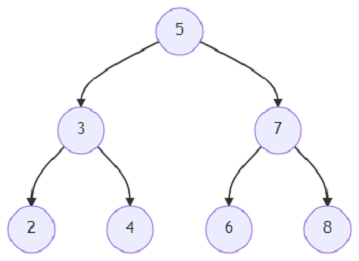
 Data Structure
Data Structure Networking
Networking RDBMS
RDBMS Operating System
Operating System Java
Java MS Excel
MS Excel iOS
iOS HTML
HTML CSS
CSS Android
Android Python
Python C Programming
C Programming C++
C++ C#
C# MongoDB
MongoDB MySQL
MySQL Javascript
Javascript PHP
PHP
- Selected Reading
- UPSC IAS Exams Notes
- Developer's Best Practices
- Questions and Answers
- Effective Resume Writing
- HR Interview Questions
- Computer Glossary
- Who is Who
Program to find out the lowest common ancestor of a binary tree of given nodes using Python
Suppose, we are given a binary tree and are asked to find out the lowest common ancestor of all the nodes in the tree. The lowest common ancestor in a binary tree is the lowest node of which the nodes x1, x2, x3,...., xn are descendants. A particular node can also be a descendant of itself. We have to find the node and return it as an output. The inputs are the root node of the tree and the list of nodes that we have to find the ancestor of.
So, if the input is like

and the list of nodes that we have to find the ancestors of are [6, 8]; then the output will be 7.
The output is 7, because the lowest node of which the nodes 6 and 8 are descendants is 7.
To solve this, we will follow these steps −
-
Define a function fn() . This will take node
-
if node is similar to null, then
return node
-
otherwise when node is preset in nodes, then
return node
left := fn(left of node) ,
right := fn(right of node)
-
if left and right are not null, then
return node
-
otherwise,
-
if left or right are not null, then
return node
-
-
nodes := a new list
-
for each elem in node_list, do
insert search_node(root, elem) at the end of nodes
nodes := a new set from nodes
return fn(root)
Let us see the following implementation to get better understanding −
Example
import collections class TreeNode: def __init__(self, data, left = None, right = None): self.data = data self.left = left self.right = right def insert(temp,data): que = [] que.append(temp) while (len(que)): temp = que[0] que.pop(0) if (not temp.left): if data is not None: temp.left = TreeNode(data) else: temp.left = TreeNode(0) break else: que.append(temp.left) if (not temp.right): if data is not None: temp.right = TreeNode(data) else: temp.right = TreeNode(0) break else: que.append(temp.right) def make_tree(elements): Tree = TreeNode(elements[0]) for element in elements[1:]: insert(Tree, element) return Tree def search_node(root, element): if (root == None): return None if (root.data == element): return root res1 = search_node(root.left, element) if res1: return res1 res2 = search_node(root.right, element) return res2 def print_tree(root): if root is not None: print_tree(root.left) print(root.data, end = ', ') print_tree(root.right) def solve(root, node_list): nodes = [] for elem in node_list: nodes.append(search_node(root, elem)) nodes = set(nodes) def fn(node): if not node: return node elif node in nodes: return node left, right = fn(node.left), fn(node.right) return node if left and right else left or right return fn(root) root = make_tree([5, 3, 7, 2, 4, 6, 8]) print(solve(root, [6,8]).data)
Input
make_tree([5, 3, 7, 2, 4, 6, 8]), [6, 8]
Output
7

